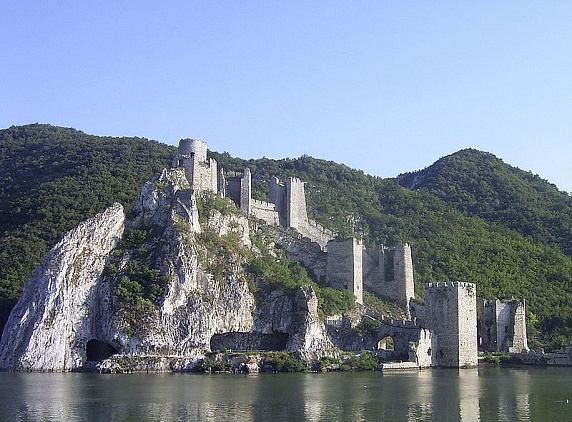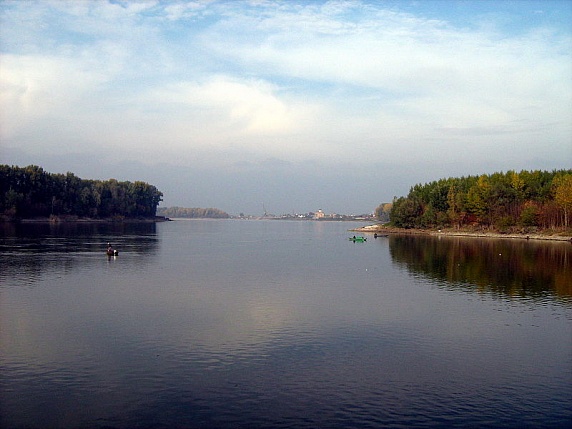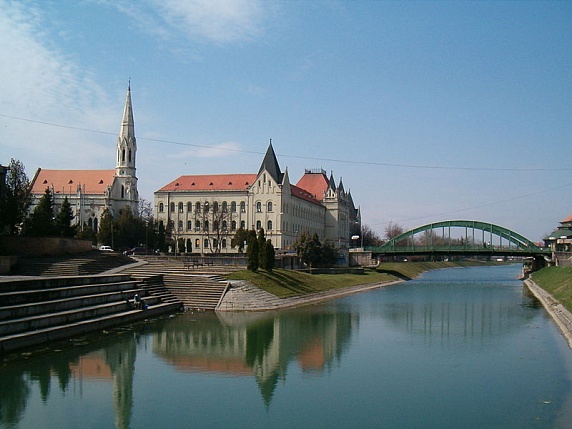 Республика Сербия
Республика Сербия
Permanent Representative of the Russian Federation to the OSCE Alexander Lukashevich’s remarks at a meeting of the OSCE Permanent Council, Vienna, August 31, 2017
In response to report by the Head
of the OSCE Mission in Kosovo
Mr Chairperson,
We are grateful to distinguished Ambassador Jan Braathu for his report on the field presence activities. Again, we note that the presented analysis of the situation in this Serbian province represents an effort to portray the existing state of affairs without distortions that are intended to serve fleeting considerations. We welcome this approach.
Kosovo remains in a state of confusion. In the two and a half months since the June 11 elections, the local parties have been unable to form government institutions, illustrating the complete paralysis of the artificial Kosovo model of so-called "statehood".
The Kosovo authorities are deliberately cultivating nationalistic sentiments. Bellicose attacks on the central authorities of Serbia continue unabated, even reaching the level of direct threats by Kosovo politicians to resume ethnic cleansing of the Serbian population in that region. Considering the past of such people, who are predominately descendants of the infamous Kosovo Liberation Army, we should take them seriously as a real threat to regional security. We urge the leadership of the OSCE Mission to respond in a prompt and principled manner to all such examples.
We hope that the recent belligerent statements by Kosovar Albanian politicians will not render less effective the recently resumed dialogue between Belgrade and Pristina with the mediation of the EU. Once again, we urge Brussels, which assumed the mediation role in accordance with the UNGA resolution of September 9, 2010, to actively ensure that Pristina follows the agreements, in particular the one to create the Community of Serbian Municipalities of Kosovo (CSMK). We hope that the meeting, on August 31, in Brussels, of the President of Serbia Alexander Vucic with the so-called President of Kosovo Hashim Thaci, organised by EU High Representative Federica Mogherini, will help unlock the situation around the CSMK, the formation of which is being sabotaged by the Pristina authorities.
A gray zone is taking root in Kosovo, where multilateral commitments in the sphere of human rights are not actually working. Oppression of the non-Albanian population, including the Serbs who are the most vulnerable in this respect, remains normal for Kosovo. The guarantees of their political, language, cultural, and religious rights remain empty declarations. In reality, discrimination persists in education, medicine, employment, and the media. Freedom of movement is limited. The Kosovo administration is unable and likely unwilling to ensure equal rights for the population of the province. Unfortunately, successive multilevel efforts of the OSCE Mission to strengthen the guarantees of observance of the legitimate rights and interests of the non-Albanian population are not producing the desired result. Nonetheless, we are convinced that this area should remain central to the activities of the field presence. It is important to realise that ensuring equal, without exemptions, legal protection of the Kosovo population is the main prerequisite for the effectiveness of all the multi-year comprehensive efforts by the OSCE Mission to promote ethnic and religious stability in this province.
The irresponsible behaviour of the Kosovo Albanian political elite only exacerbates the atmosphere of militant intolerance towards the non-Albanian population at everyday level. It is not a secret for anyone that even the few accusatory verdicts against Kosovar Albanians convicted of crimes against Serbs are being increasingly revised by new Kosovo judges. Murderers and rapists are leaving prisons with a sense of superiority. Is it any wonder, in this context, that the report cites almost daily ethnically motivated incidents in Kosovo.
The unbiased work of the Special Court in The Hague is the only way to reverse the situation. Legal obstacles to this institution beginning its work are eliminated. We are expecting concrete results in the very near future. Those guilty of high-profile crimes should be punished regardless of their status and place in the current hierarchy of the Kosovo government.
We hope for improvements in security on the ground and with the OSCE Mission's project to fortify local public security committees. Continued work to promote the capacity of the Kosovo police, including in connection with the growing terrorist threat in the province, is very welcome.
The atmosphere of intolerance and impunity is the main obstacle to the return of IDPs. The statistics presented by the OSCE Mission at our urgent request indicates that the situation in this area is deplorable. We expect that the Mission will provide regular updates on this account. One cannot turn a blind eye to such inconvenient facts.
We are grateful to distinguished Ambassador Jan Braathu, for his personal assistance in obtaining identity documents for a family of Serbian IDPs in the village of Ljuboje. We believe that such an example of concern for IDPs who have been deprived of their rights can serve as a concrete evidence of the need for the OSCE's work in the field. Especially in a situation where the OSCE Mission remains, in fact, the only working international instrument capable of providing practical assistance to the most vulnerable ethnic groups.
The policy of the Kosovo administration is at variance with the declared goals of strengthening inter-confessional tolerance. The Pristina authorities are hindering the activities of the Serbian Orthodox Church in that province. The decision of the Kosovo court, which confirmed the ownership of the Visoki Decani monastery, is not being implemented. The renovation of religious facilities of the Serbian Orthodox Church, in particular the Cathedral of Christ the Saviour in Pristina, is being blocked. Turning off water supply in a convent in Pec, condoning arson, acts of vandalism, and intimidation of pilgrims - all this sends the message that they want to erase Serbian heritage from that region. We hope that the OSCE Mission will actively participate in the protection of the Serbian Orthodox Church shrines from illegal encroachment. Mediation mentioned in the report regarding the settlement of an imminent conflict around the Serbian Orthodox Church in Lipljan is a positive example.
The OSCE Mission’s observations once again confirm the increasingly obvious gap between the Kosovo reality and the purported goals of creating a safe and democratic society in that province. In these conditions, it is indisputably necessary to continue large-scale external assistance and close monitoring of the situation in the province. Clearly, it’s time to change the paradigm of blind and undemanding patronage by certain Western countries, which is perceived by the Kosovo Albanian political elite as a kind of an indulgency to preserve the existing intolerable situation in that area.
In this context, the decision of the Austrian OSCE chairmanship to invite Pristina representatives to an informal meeting with the head of the Mission in Kosovo in Vienna on August 30 is particularly disappointing. We see this as an attempt to move away from a status neutral position, which runs counter to the decision of the OSCE Ministerial Council in Porto (2002) on the role of the OSCE chair-in-office and undermines the reputation of the Austrian chair as an honest broker. In addition, such a step openly contradicts UN Security Council Resolution 1244, which remains the basis of the Kosovo settlement.
Thank you.











